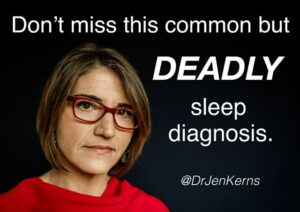If you’ve been following my posts over the last few weeks, you know that poor quality or short sleep predisposes you to weight gain, and that I personally struggle with insomnia. For me, it’s been ongoing at least 5 or more years and seemed to get worse after I had Graham 3 years ago and simultaneously started to have my first hot flashes, signaling the beginning of perimenopause (women start to have hormonal shifts and can experience hot flashes as early as ten years before they actually arrive at menopause!). To be clear, Graham started sleeping through the night at 8 weeks old, so it wasn’t the usual sleep struggles that a new mom experiences routinely. I DID get up every night for an hour around 2am to pump breast milk as he slept, but by the time I returned to work about 3.5 months after he was born, I had adjusted my pumping schedule to 3 times a day and could wait until 5:00am. Despite a sleeping baby and no obvious external disruptions to my sleep, I continued to struggle with middle of the night awakenings and often had difficulty returning to sleep. When you can fall asleep easily (me!) but awaken earlier than desired, it’s called maintenance insomnia. I talked to my primary care doctor about it, and we both suspected anxiety may be playing a role (I’d also felt somewhat more anxious than usual in the year or two after Graham was born). She prescribed an antidepressant called Lexapro (which can also be used for other mood disorders like anxiety). I gave it a try, finding that it was maddeningly activating for the first 1-2 weeks (meaning, it kept me awake as if I’d had 4 cups of coffee before bed), but I knew that it can take weeks to adjust so I kept at it. By the 6 week mark I found that Lexapro did absolutely nothing for me, neither improving my sleep nor seeming to have any effect of my mood or anxiety. So I quickly tapered off it. I then spoke to my OB-gyn about it, because it really felt hormonal to me. Just as I’d started to notice a few hot flashes, I’d been experiencing the increase in anxiety – and I noticed a significant worsening in my tossing and turning in the days leading up to my period, and unusually sound sleep in the days following my period – suggesting that hormones might be a big player. She prescribed a low estrogen birth control pill for me to help “smooth out” my hormones. I stayed on them for three straight months, unfortunately finding that they did get rid of the rare hot flashes, but did nothing to improve my sleep (if anything, I lost the good quality sleep that I’d been noticing in the week after my period). So, I stopped those, too. I finally saw a sleep specialist at the George Washington University as a last ditch effort. Pondered whether I might have narcolepsy because I do have this weird thing called “cataplexy” when my muscles suddenly lose strength sponge to strong emotion (I even almost fell off a treadmill while running due to sudden leg weakness when I was suddenly overcome with joyous laughter watching Steve Carell in “The Office!”) — narcolepsy is often associated with cataplexy. But our suspicion was low because I had never actually fallen asleep during the day. He gave me some advice based in cognitive behavior therapy for insomnia, or CBTi (no more looking at the clock, get out of bed and go do something mindless if you can’t fall back to sleep within ten minutes). I had a few nights of somewhat better sleep when I employed these methods, but over the year that followed still had pretty profound trouble with multiple awakenings.
I started to worry more and more about my sleep, because I felt like my own cognitive function was starting to falter (especially forgetting names, and having more trouble paying attention to anything that I didn’t care a lot about). Well-meaning doctor friends reassured me it was normal, that I was in my mid 40s when we ALL start to forget names, and that I had simultaneous “mommy brain” with a baby at home. But my deep seated fear that I was in the very early stages of Alzheimer’s disease (given my own young mother’s diagnosis), and my knowledge that adequate and good quality sleep is critical for the brain to heal itself kept me searching for ways to improve my sleep.
One day about 4 months ago, I was watching a TED Talk about sleep in which a slender-appearing gentleman spoke about his own disrupted sleep and how he would often get up multiple times to urinate as if something else was waking him up. DING DING DING!!! This was me! I would awaken and visit the bathroom usually three times during my fragmented night, but when I peed it never seemed like much. Certainly my bladder was never full enough to have woken me. So what WAS waking me??
Well, this man was diagnosed the obstructive sleep apnea (OSA) — a sleep disorder in which the soft tissues in your airway relax and collapse during sleep, thereby blocking your airway and preventing you from breathing. In the 15 minutes that it took me to watch his talk, it suddenly dawned on me that *I* could have OSA. The weird thing was, I was very low risk according to the usual screening questions: I was not overweight (anymore), didn’t snore (at least not loudly enough for Kevin to notice), didn’t have high blood pressure, and although I definitely felt tired during the day, I was never sleepy enough to fall asleep sitting in a lecture or when stopped at a red light. But man, the disrupted sleep and especially my own subjective sense of cognitive impairment sure could be explained if I had OSA. So, I contacted that sleep specialist again (about a year and a half after I met with him) and requested that he order a sleep study for me to rule it out.
Because my BMI was in the normal range, my insurance company would only pay for a home sleep study (rather than the gold standard polysomnogram that you have in a sleep center). I completed the test at home on November 8, 2019. I never heard from anyone about the results. About 6 weeks after the study I had a follow up appointment in the sleep clinic….
“You were right: you have moderate sleep apnea.”
WHHHAAAAAAA????!!!!
I was actually shocked. I thought it would be a negative study. Even *I* didn’t think I actually had OSA, since my body weight was normal. I always thought of it as a disease that plagued people with obesity. Obviously, so did my primary care doctor, my OB-gyn, AND the sleep specialist I went to! It turns out that I was having a respiratory event (either partially or completely obstructing my breathing) on average 23 times per hour. That’s once every 2.6 minutes. No WONDER I was awakening multiple times each night and feeling tired every day! (The sleep study also showed that I do indeed have “intermittent snoring” — I guess it was just never loud enough to bug my ever-tolerant husband!)
So, I needed autoCPAP — a machine to blow air into my nose/mouth while I sleep to keep my airways from collapsing and blocking my breathing. I had to wait a couple of weeks for the new machine to be delivered, but I’ve since been faithfully wearing my mask every night. Honestly, the first week or two was rough — getting used to having a lamprey attached to my face took a while. I am still sorta getting used to it, although I must say it’s getting way more “normal” feeling… and the good news is, I am sleeping a lot better already! I still wake up once or sometimes twice, but I have a much easier time getting back to sleep. Last night I slept 7.5 hours and woke up feeling fresher this morning, and more than 7 hours was essentially unheard of for me before I started treatment for my OSA! I do still notice that I sleep a lot worse leading up to my period and much better right after, so there are certainly also other factors at play with my sleep… but I feel such a huge sense of relief to finally have a diagnosis that explains my crappy maintenance insomnia that nothing seemed to help. And thankful beyond belief that I advocated for myself and asked for the sleep study even when my doctors didn’t think I was really at risk.
Why is figuring out whether you have OSA important? Because when left untreated, it’s deadly: it causes car accidents caused by falling asleep at the wheel, difficult-to control high blood pressure, heart disease, stroke, diabetes, depression, and perhaps most importantly to me personally, cognitive impairment and Alzheimer’s disease. OSA is extremely common, affecting more than 22 million Americans including up to 23% of women and 49% of middle-aged men, and the prevalence increases with age (and with peri/postmenopausal status in women: 47 to 67% of postmenopausal women have OSA!). Despite it being this common, it’s extremely underdiagnosed: estimates suggest that 80% of men and 93% of women with moderate to severe OSA have not been diagnosed. Being overweight is a risk factor, but I was shocked to learn that about 20% of sleep apnea cases are in people of normal weight! People with a normal BMI who have OSA tend to be more easily aroused from sleep, and may have a family history of OSA, suggesting genetic predisposition. Indeed, both my father and my brother have OSA.
Treatment is generally with an AutoCPAP machine like the one I am now getting used to, but in people who can’t (or aren’t willing to) tolerate wearing a mask to sleep, there are other treatment options, including dental appliances that change the way your jaw sits thereby opening your airway to stop the snoring and the blocked breathing, and even surgical implantation of a nerve stimulator that moves your tongue out of the way when you sleep!
When I took the standard “STOP-BANG” screening questionnaire, I answered yes to only one question and was told I was at low risk for OSA – yet I was actually suffering from moderate OSA that was bad enough to require treatment. So with that in mind, I have taken this standard screening questionnaire and added a few of my own symptoms and risk factors here to create my own invalidated-but-valuable Dr. Jen Kerns’s Sleep Apnea Screening Tool:
- Do you snore?
- Do you often feel tired, fatigued, or sleepy during the daytime?
- Do you generally fall asleep within 2 or 3 minutes when you lie down to sleep at night?
- Has anyone observed you stop breathing or choking/gasping during your sleep, or have you ever woken up feeling like you are drowning or choking?
- Do you have or are being treated for high blood pressure?
- Is your body mass index (BMI) more than 27 kg/m2? Calculate your BMI here.
- Are you older than 50 or postmenopausal?
- Is your neck size (measured around the Adam’s apple) 17 inches/43cm or larger if you’re a biological man, or 16 inches/41cm or larger if you’re a biological woman?
- Is your biological gender male?
- Do any of your first degree relatives (parents, siblings, or children) have sleep apnea?
- Do you have fragmented sleep and wake up more than once or twice at night without an obvious cause?
If you answer “yes” to 3 or more of these questions, I strongly suggest that you ask your primary care provider to order a home sleep study for you to rule out sleep apnea. Untreated sleep apnea has been shown to increase your risk of death by almost 4-fold. If you have it, treating it could truly save your life.
Until next week, sleep well!
Jen


